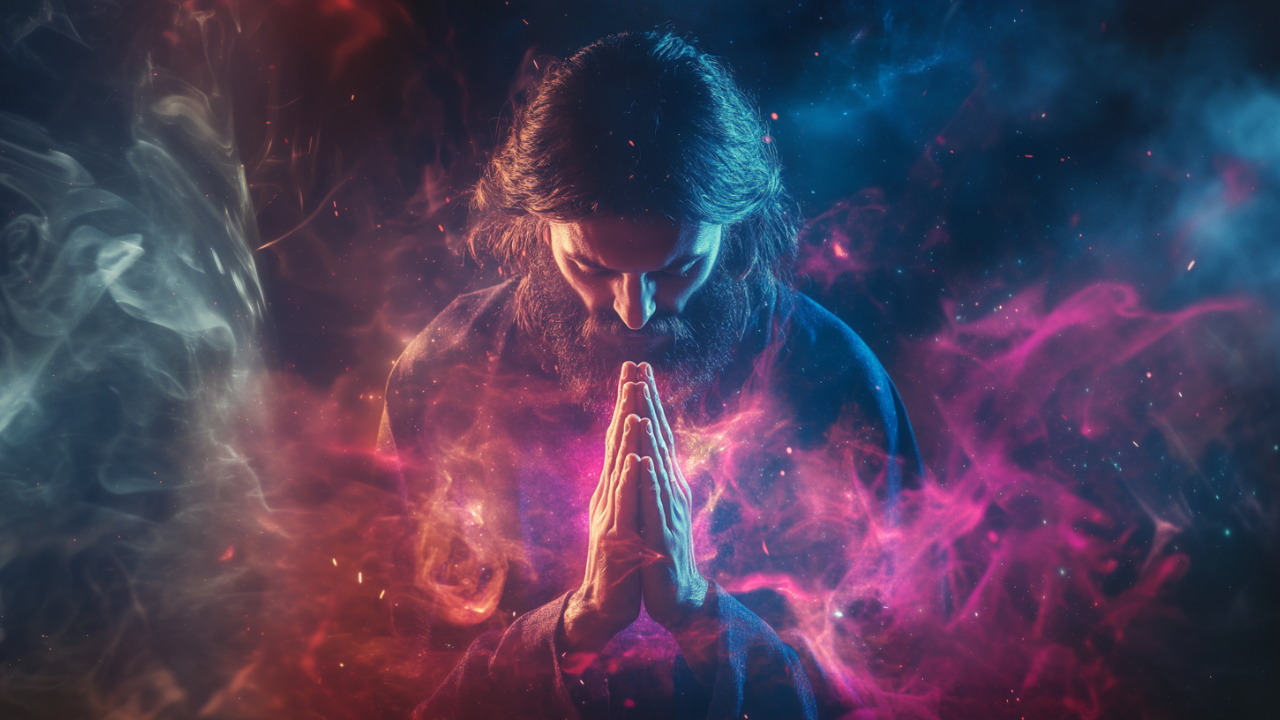Fear and Fellowship: A Supernatural Unity in Christ Alone (Acts 2:43–47)
Apr 09, 2025
In the book of Acts, fear falls upon every soul and many wonders and signs are done by the apostles. This causes all that believed to be together and have many things in common. The early Church was a beautiful time—ripe with threats from the world around them, yet full of wonders and miracles within the Church. Within New Age teachings, there is often the borrowed idea that we are all “on one accord,” but the Bible shows clearly this is not true. Only those who are in Christ are in one body together. Just as when two are married they become one flesh, when we enter under the banner of Jesus Christ, we become one spirit with Him.
Scripture (KJV)
“And fear came upon every soul: and many wonders and signs were done by the apostles. And all that believed were together, and had all things common; And sold their possessions and goods, and parted them to all men, as every man had need. And they, continuing daily with one accord in the temple, and breaking bread from house to house, did eat their meat with gladness and singleness of heart, Praising God, and having favour with all the people. And the Lord added to the church daily such as should be saved.” — Acts 2:43–47
Key Greek Word: φόβος (phobos)
Strong’s G5401: Phobos — translated here as “fear” — is a multidimensional word rooted in divine tension. While modern interpretations often reduce it to terror, the scriptural meaning is richer: awe-filled reverence, respect for holy presence, and a soul-stirring awareness of divine authority. It corresponds to Hebrew terms like yirah (H3374) and yare (H3373), both expressing the same double-edged sword of holy dread and intimate reverence. This wasn’t a fear that made them flee — it was the kind that made them bow. It was as if the veil had been lifted, and the people became acutely aware of the Kingdom piercing into time and space through the apostles.
Esoteric & Comparative Insights
The atmosphere in Acts 2 echoes ancient temple mysticism. Just as the High Priest entered the Holy of Holies trembling with yirah, the people in Jerusalem experienced the same awe — not just because of signs and wonders, but because something holy was being reestablished on earth as it is in heaven. In contrast, many metaphysical or New Age movements invoke unity through impersonal cosmic energy or vibrational alignment, attempting to achieve “one accord” through mental resonance. But Scripture is bold — this unity was not abstract or energetic; it was incarnational. It was rooted in the Spirit of Christ, not the spirit of the age. “One accord” came through shared reverence, shared covenant, and a shared indwelling of the pneuma (Spirit) — not merely agreement in mindset, but supernatural oneness in Christ.
Supernatural Implications
This passage is not merely historical—it is a divine blueprint. The fear (phobos) that fell was a divine atmosphere signaling heaven’s approval. The wonders and signs were not magic tricks but confirmation of apostolic authority. The sharing of goods was not socialism; it was koinōnia—divine fellowship, Spirit-led generosity flowing from a supernatural bond. And the unity described as “one accord” (homothumadon) was a harmonizing of souls tuned to the sound of heaven, a manifestation of true spiritual marriage between the Bride and the Bridegroom. They broke bread with singleness of heart, not because they were forced into agreement, but because they had encountered Truth Himself. This supernatural life drew favor not by marketing, but by manifesting the Kingdom—and the Lord added to them daily.
Conclusion
This is more than early Church nostalgia. It is a prophetic invitation. The awe (phobos) of God should still fall. The signs should still follow. The unity should still burn in those who are in Christ, not just in ideology but in supernatural embodiment. Let us return to that singular fear—not of man or chaos, but of a holy God in our midst. For when we tremble rightly, we unify rightly, and the world once again sees Jesus through His Body.

